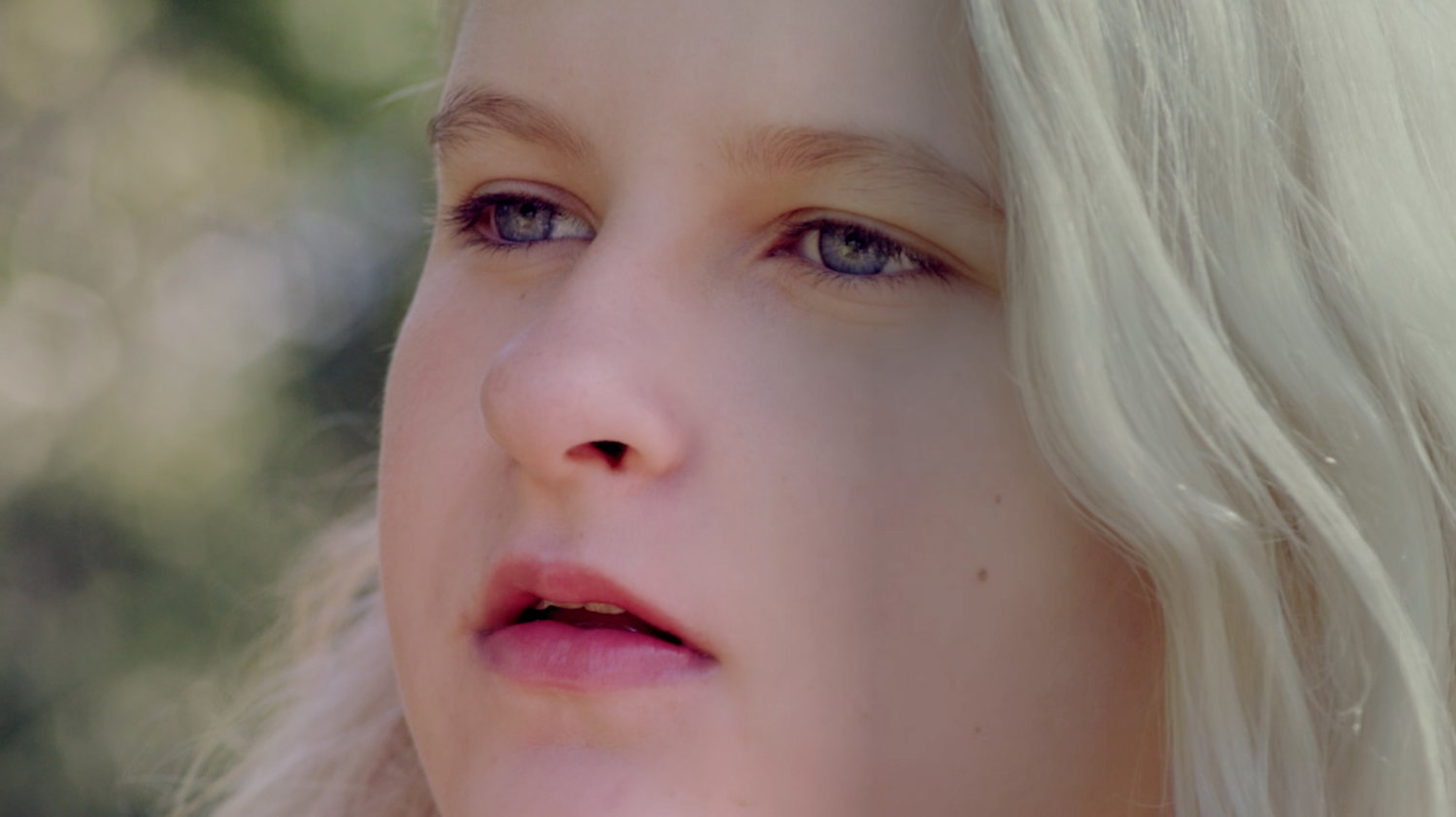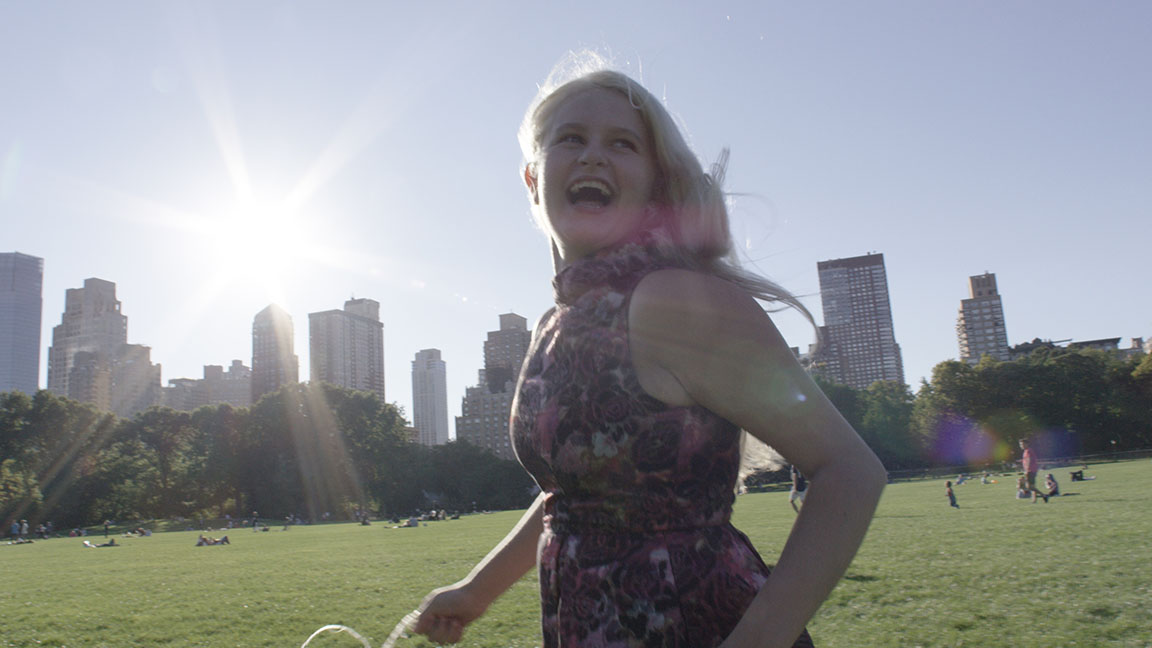16-year-old Emma Zurcher-Long fervently loves musicals like many teens her age. She wears colorful dresses, takes singing and piano lessons, and writes poetry. Though Emma is not your average teenager. For the last four years, Emma has been traveling across the country speaking at national conferences. What has she been speaking about? Her experience living with autism.
Emma was two and a half when she was first diagnosed with autism spectrum disorder (ASD), a neurological condition that impacts 1 in 59 children according to the Centers for Disease Control and Prevention. After her parents, Ariane and Richard, realized she did not respond to her name, they took her to be evaluated by various psychologists. Spending many years looking for answers, they also began a blog called Emma’s Hope Book, documenting the ebbs and flows of their journey to better understand and support their daughter.
During that time, clinicians and autism organizations often approached autism from a “tragedy mode” mindset in which doctors would say things like, “there is no cure but there is always hope,” according to Ariane. While her parents had never met a single autistic adult, they started to make assumptions about their daughter’s intelligence and capabilities, leading them to behave a certain way towards her for several years.
Though overtime the family’s perception towards Emma’s circumstance shifted. One day, Ariane came across a post by Julia Bascom, on her blog called Just Stimming. In the post, Bascom, an autistic woman who champions autistic acceptance, wrote about the obsessive joy of living with the condition and the rich sensations that come with experiencing the world through a non-neurotypical point of view.
The post challenged Emma’s parents earlier views — instead of trying to find a magical cure that would remove their child’s autism and allow her to speak beautifully articulate sentences, they decided to find ways to simply let Emma be herself.
One such way was a system called Rapid Prompting Method (RPM). Founded by Soma Mukhopadhyay, the practice aims to empower students to express themselves through identifying a child’s preferred stims, and teaching them stenciling and typing systems, which allow individuals with autism to communicate and learn in ways that make sense for them.
Upon trying the process out with Emma, Ariane and Richard learned that their daughter had taught herself how to read and write by watching words pass by her and listening to others read, but she was not able to verbalize it. This moment marked a massive shift in Emma’s relationship with her family as it represented a means through which they could communicate with her on a deeper level. Regarding this discovery, Emma now reflects on her circumstances saying, “In some ways life is harder because people expect my actions and demeanor to match my typed words.” But according to her, “Change also comes from people having to rethink what they once thought about people like me.”

Quickly, the family realized that sharing their experience could shift the pervasive and harmful dialogue surrounding autism, while Emma didn’t want any other child to be doubted the way she had been. In just four years Emma and Ariane have now given over 25 presentations across the country.
Seeing this as a way to shift mainstream views on autism and people with disabilities, Geneva Peschka, a friend of the family, felt compelled to direct and produce a documentary short about Emma’s experience while also enlisting friend Julia Ngeow as co-director and cinematographer.
Yet when it came to sharing details of Emma’s life, Geneva believed Emma should have the opportunity to tell her own story in a candid way, thus enlisting Emma co-director and giving her final sign-off on the film. “As a woman of color, I know all too well what it’s like to have your narrative told by others,” Peschka says. “When you have the opportunity to share your story authentically we widen our lenses as filmmakers and audiences, and foster a more open dialogue and deeper understanding of each other.”
To make the short film, the three women discussed what Emma would like people to know about her journey, how to best showcase her advocacy work, and ways to emphasize how her life is full of joy, connections, and love. Throughout the making of the film, Emma was involved in all decisions including pre-production, post-production, editing, color, and sound. It took approximately two years to complete from when Emma was 12 to 14 years old.
Following a series of initial clips of Emma during her early childhood years, UNSPOKEN cuts to present day. Off-camera, Peschka asks Emma what message she hopes to get across from the documentary. “This will be my spectacular voice debut when everyone will gasp in dismay and there will be thunderous applause and uproarious laughter. I will charm and astound and it will change how people think about people like me,” she types.
In the following scene, Emma is shown hanging out in Central Park, admiring flowers and gliding her feet in the fountain water as the caption comes across the screen: “I have come to understand that my mind is not like most people’s. I am autistic,” she declares proudly. Throughout the film, closed captions are used to narrate Emma’s story.

From there, we witness a montage of moments in Emma’s daily life as she participates in various speaking commitments and explains to people the level of effort it takes for her to communicate in a way that neurotypicals can understand. “People seem to need words more than I do,” she expresses to an audience at Pratt Institute.
At the iCare4Autism conference in New York, Emma, who is 12 at the time, chooses to speak about how her body does not obey her mind: “The beauty of the mind is often ignored by my difficult body that is very childlike in movement.” Ariane appears in the clip, reflecting on the days before the family found RPM. “Emma would say something and I would think that the words that were spoken were exactly what was meant.”
Later, while chewing bubblegum and skipping her way through the subway with her dad, a caption appears: “I often think if all humans could experience the world in hi-res, technicolor, surround sound, as I do everyone would be happier.”
In just 26 minutes, UNSPOKEN shows us how real, first-person media can shift perceptions and breakdown age-old stigma. Unlike most media portrayals today, UNSPOKEN gives us a positive and true showcase of a young person living their normal life, as seen through her own eyes. And what we come to realize are the ways in which society is built to exclude the diverse needs of people like Emma, who are not disabled in their own right but are disabled by the world around them.
It is Emma’s hope that people who see the film will recognize that, “kindness and love wins.” When asked what she wishes people knew about living with autism, she says, “The same things I wish the world understood about all human beings living their lives — we are all fallible, ever-changing, ever-growing, and sensitive to each other’s presence.” Moving forward, the directors hope to broadcast the film as much as they can — it’s already been shown at various festivals — and share it with more schools, so its message can spread as far as possible.
Ultimately, Emma’s vulnerability shows us that although the voices of autistic and disabled people may look or sound different, they matter equally. In this way, her story highlights the immense power of self-advocacy, putting forth a call to action for all viewers — to have radical empathy, respect and acceptance for everyone, no matter one’s ability or identity.
UNSPOKEN has confirmed North American Education Distribution. If you are a school, university, library, or community group interested in purchasing the film when it’s released please email arlin@videoproject.com
